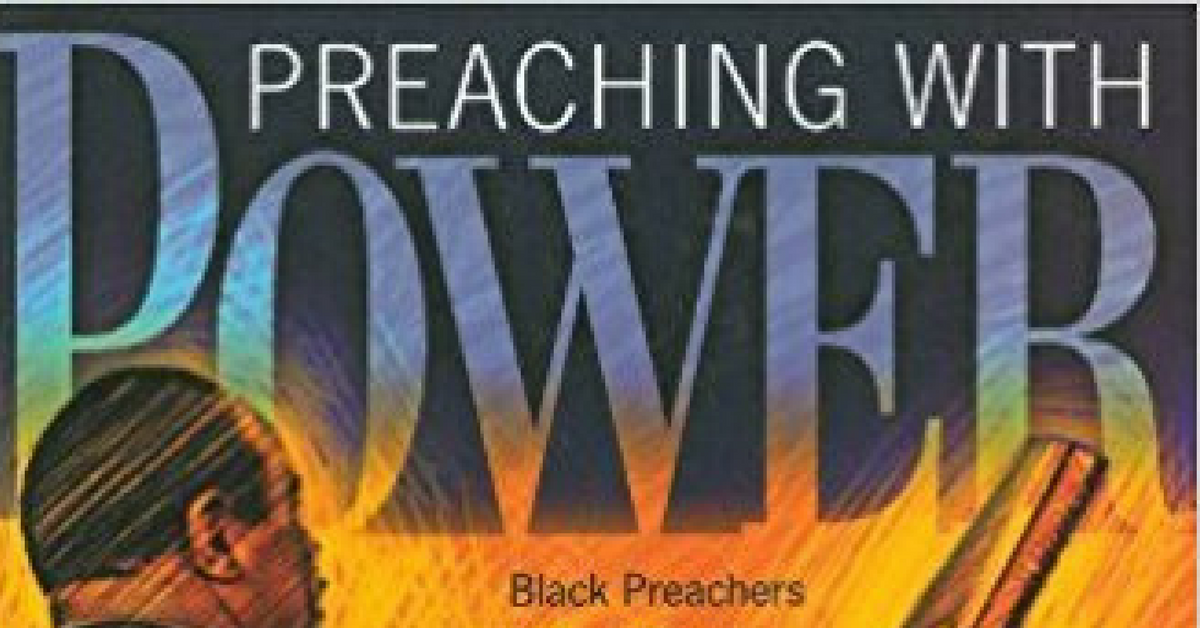 The first interview is with the chaplain of the United States Senate Dr. Barry Black. Dr. Black has had an illustrious career in Chaplaincy and is a demonstration that the Adventist Pastorate is not the only vocation for Seventh-day Adventist preachers.
The first interview is with the chaplain of the United States Senate Dr. Barry Black. Dr. Black has had an illustrious career in Chaplaincy and is a demonstration that the Adventist Pastorate is not the only vocation for Seventh-day Adventist preachers.
Understanding of Preaching
Dr. Black acknowledges Phillip Brooks as informing his understanding of preaching and describes it as “truth through personality.” Dr. Black states that his “upbringing on welfare” shapes his preaching. I think that this is an important for preachers to recognize that God has chosen them at the present time to preach the Gospel to the people. Dr. Black reminds us that we cannot fight in other’s armor but we must preach the Gospel as ourselves.
Method of Sermon Preparation
Dr. Black states that his sermons come from his devotional life. Dr. Black states that he “preaches out of the overflow of [his] devotional life. He emphasizes the importance of reading reference materials, but also encourages preachers to use their own imagination. Dr. Black only provides an outline of his method, but the little he describes reminds me of another pastor’s. This pastor kept meticulous notes on his devotional life. His devotions for today are the basis of sermons for next year. That way he knows exactly what he will preach next year. The method is helpful in that it promotes a healthy devotional life, but one must be sure to add the second component of adding resource materials if one is to provide depth to the sermonic event.
Understanding of Adventist Preaching
On page 17 Dr. Black states that Black SDA preachers have the challenge of making Adventist doctrines more attractive. He states one way of doing this as placing the doctrine in the Bible story. For example, he states why not preach the State of the dead within the context of a story like Lazerus. This idea is very intriguing. I was talking to someone the other day about how many times our preachers normally preach with imagination, but when they move to preaching the doctrines we end up with a “proof text method”. I think it would be interesting to place the doctrines in the Biblical story and more than Dr. Black’s suggestion to ask “why didn’t Lazerus tell about the glories of heaven,” I would push for a methodology that applies Dr. Mitchell’s idea of celebration to the doctrines. I would encourage the Black preacher to ask, “What is there in the doctrine to celebrate?”
Understanding of Black Preaching
In the interview Dr. Black doesn’t speak explicitly about the nature of Black Preaching. He does refer to the fact that he has studied with Henry Mitchell. This might explain why Dr. Black explains the Black sermon as “narrative” and that there is a musicality and a lyrical quality. I think we must emphasize the form (narrative) that black sermons often take and the style (musicality and lyrical quality). This is important, but as we shall see, we also must include the distinctive theological focus that Black Preachers bring to the preaching event. This is shown in Cleophas LaRue’s Heart of Black Preaching as well as Dr. Calvin Rock’s article on Black SDA Preaching found in the September 2000 Ministry Magazine. In addition to the above Dr. Black speaks of the importance of understanding venue. You do not preach in the same way in every location. This is probably an important point for Dr. Black in that he has the opportunity to preach in many different settings. I think that appropriateness is important, but one must also keep in mind the importance of being a prophetic voice. This is a very important thing to keep in mind for those of us who are called to preach in other venues. As one who on occasion had to do this, we must find a way to determine what is appropriate, what should be preached, and also how we can give a call to better living informed by our understanding of the Gospel.


